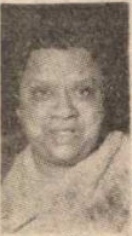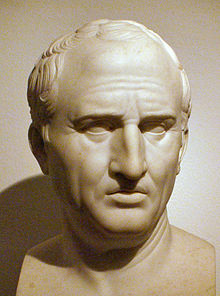Undecidable problem
|
Read other articles:

روبن هيشت معلومات شخصية الميلاد 15 أغسطس 1909 أنتويرب تاريخ الوفاة 14 أبريل 1993 (83 سنة) مواطنة سويسرا الحياة العملية المهنة رائد أعمال، وجامع تحف اللغات العبرية الجوائز جائزة إسرائيل (1988) تعديل مصدري - تعديل روبن هيشت هو رائد أعمال سويسري، ولد

Clarence WilsonA Shriek in the Night (1933)LahirClarence Hummel Wilson(1876-11-17)17 November 1876Cincinnati, Ohio, Amerika SerikatMeninggal5 Oktober 1941(1941-10-05) (umur 64)Hollywood, California, Amerika SerikatPekerjaanPemeranTahun aktif1920-1941 Clarence Hummel Wilson (17 November 1876 – 5 Oktober 1941) adalah seorang pemeran karakter asal Amerika Serikat. Wilson tampil dalam sekitar 200 film antara 1920 dan 1941, umumnya dalam peran pendukung. Referensi Pranala...

Leonard Nimoy Leonard Nimoy in 1966 Algemene informatie Volledige naam Leonard Simon Nimoy Geboren 26 maart 1931 Geboorteplaats Boston (Massachusetts) Overleden 27 februari 2015 Overlijdensplaats Bel Air (Californië) Land Vlag van Verenigde Staten Verenigde Staten Werk Jaren actief 1951–2013 Beroep Acteur Stemacteur Filmregisseur Filmproducent Televisieproducent Scenarioschrijver Dichter Fotograaf (en) IMDb-profiel (en) IBDB-profiel MovieMeter-profiel (en) TMDb-profiel Porta...

Сексмісія / Нові амазонкипол. Seksmisja Жанр комедіяРежисер Юліуш МахульськийПродюсер Махульський ЮліушСценарист Юліуш МахульськийЙоланта ГартвіґУ головних ролях Єжи ШтурОльгерд ЛукашевичБожена СтрийкувнаБогуслава ПавелецьОператор Єжи ЛукашевичКомпозитор Хенрік Кузьн

هذه المقالة يتيمة إذ تصل إليها مقالات أخرى قليلة جدًا. فضلًا، ساعد بإضافة وصلة إليها في مقالات متعلقة بها. (أكتوبر 2022) سيف غوجيانصورة لسيف غوجيان في متحف مقاطعة هوبيمعلومات عامةمادة الإنشاء برونزتاريخ الإنشاء فترة الربيع والخريفتاريخ الاكتشاف الصين، مقاطعة جيانغلينغ س

No debe confundirse con la serie de televisión valenciana L'Alqueria Blanca. Para otros usos de este término, véase Alquería (desambiguación). Alquería Blanca s'Alqueria Blanca localidad Vista de Alquería Blanca desde la carretera de Porto Petro Alquería BlancaUbicación de Alquería Blanca en España. Alquería BlancaUbicación de Alquería Blanca en las Islas Baleares.País España• Com. autónoma Islas Baleares• Provincia Baleares•...

fotografiert von Allan Warren Elena Souliotis, auch Elena Suliotis (griechisch Έλενα Σουλιώτη; * 28. Mai 1943 in Athen; † 4. Dezember 2004 in Florenz) war eine griechische Opernsängerin (Sopran). Leben Mit zwei Jahren erlitt sie eine Meningitis und war danach auf einem Ohr schwerhörig. Als sie fünf Jahre alt war, emigrierten ihre Eltern – die Mutter war Griechin, der Vater Russe – nach Buenos Aires. Ihre Gesangsausbildung erhielt sie dort bei Alfredo Bontà, Jascha Galpe...

1983 live album by Chet Baker TrioSomeday My Prince Will ComeLive album by Chet Baker TrioReleased1983RecordedOctober 4, 1979VenueJazzhus Montmartre, Copenhagen, DenmarkGenreJazzLength54:32 CD release with bonus tracksLabelSteepleChaseSCS 1180ProducerNils WintherChet Baker chronology This Is Always(1979) Someday My Prince Will Come(1983) Chet Baker / Wolfgang Lackerschmid(1979) Someday My Prince Will Come is a live album by trumpeter/vocalist Chet Baker which was recorded in 1979 at t...

Анатолій КривоножкоКривоножко Анатолій Миколайович Генерал-лейтенантЗагальна інформаціяНаціональність українецьВійськова службаПриналежність УкраїнаВид ЗС Повітряні силиФормування ПвК «Центр»Війни / битви Російсько-українська війнаКомандування 2006—2008 ...

Не плутати з Ґіві. Російський колабораціонізм Друга світова війна Основні поняття Колабораціонізм у Другій світовій війні • Російський визвольний рух Ідеологія Непримиримість • Антикомунізм • Пораженство Історія Громадянська війна в Росії • Біла еміграція • Колекти

أعضاء مؤتمر سيواس في سبتمبر 1919. أعضاء مؤتمر سيواس في عام 1919 أول وصول للجنة التمثيلية في أنقرة في 27 ديسمبر 1919. هيئة التمثيل (بالتركية: Heyet-i Temsiliye) كانت الفرع التنفيذي للقوميين الأتراك قبل افتتاح الجمعية التركية الكبرى في الفترة 1919-1920. الخلفية بعد هزيمة الدولة العثمانية في ال�...

Indian actress (1947–2019) GeethanjaliBornMani[1]1947 (1947)Kakinada, Madras Presidency, British IndiaDied31 October 2019(2019-10-31) (aged 71–72)Hyderabad, Telangana, IndiaOccupationActressYears active1947–2019SpouseRamakrishna[1]Children1ParentsSri Rama Murthy[1] (father)Shyamalamba [1] (mother) Geethanjali (1947 – 31 October 2019) was an Indian actress who worked in Telugu, Tamil, Malayalam, and Hindi films.[2] In a career span...

2019 compilation album by Dermot KennedyDermot KennedyCompilation album by Dermot KennedyReleased4 January 2019LabelRigginsInterscopeIslandProducerKozCarey WillettsDermot Kennedy chronology Mike Dean Presents: Dermot Kennedy(2018) Dermot Kennedy(2019) Without Fear(2019) Singles from Dermot Kennedy An Evening I Will Not ForgetReleased: 18 November 2015 ShelterReleased: 12 February 2016 After RainReleased: 1 April 1, 2016 Moments PassedReleased: 19 September 2017 Young & FreeRelease...

Empress of Japan from 1989 to 2019 You can help expand this article with text translated from the corresponding article in Japanese. (June 2021) Click [show] for important translation instructions. Machine translation, like DeepL or Google Translate, is a useful starting point for translations, but translators must revise errors as necessary and confirm that the translation is accurate, rather than simply copy-pasting machine-translated text into the English Wikipedia. Consider adding a ...

Filipino fish sausage Fish longganisaCourseSausagePlace of originPhilippinesMain ingredientsfish (typically tuna, tilapia, or milkfish) Fish longganisa, or fish chorizo, is a Filipino sausage made with fish instead of pork or beef. It is typically made from tuna, tilapia, or milkfish. It is prepared identically to other Filipino longganisa and is marketed as a healthier alternative. It may use regular pork casings, vegetable-based casings, or be prepared skinless (without the casing).[1&#...

This article may need to be rewritten to comply with Wikipedia's quality standards. You can help. The talk page may contain suggestions. (December 2018) 2018 Swedish filmDraugFilm posterDirected byKlas PerssonKarin EngmanWritten byKlas PerssonProduced byKarin EngmanFaravid Af UgglasStarringThomas HedengranElna KarlssonRalf BeckNina FilimoshkinaUrban BergstenMatti BoustedtCinematographyKlas PerssonMusic byKlas PerssonProductioncompanyÖdmården Filmproduction HBRelease dates October 10,&#...

Cave temple associated with the Mahāsāṃghika sect. Ajaṇṭā Caves, Mahārāṣtra, India Part of a series onEarly Buddhism Scriptures Early Buddhist Texts (EBT) Tripiṭaka Nikayas Āgamas Gandhāran EBTs Prātimokṣa Abhidharma Jatakas Avadanas Mahāvastu Śālistamba Sūtra Tibetan EBTs in the Kangyur Early sangha Gautama Buddha Sāriputta Mahāmoggallāna Mahāpajāpatī Gotamī Mahakasyapa Ānanda Upāli Mahākātyāyana Devadatta Anāthapiṇḍika Pre-sectarian Buddhism Kingdom ...

Social worker Not to be confused with Begum Akhtar or Begum Akhtar Riazuddin. This article needs additional citations for verification. Please help improve this article by adding citations to reliable sources. Unsourced material may be challenged and removed.Find sources: Begum Akhtar Sulaiman – news · newspapers · books · scholar · JSTOR (October 2014) (Learn how and when to remove this template message) Begum Akhtar SulaimanPakistani Political Activi...

В Википедии есть статьи о других людях с фамилией Садовников. Дмитрий Николаевич Садовников Дата рождения 25 апреля (7 мая) 1847(1847-05-07) Место рождения Симбирск, Симбирская губерния, Российская империя Дата смерти 19 (31) декабря 1883(1883-12-31) (36 лет) Место смерти Санкт-Петербург, Рос�...

Ne doit pas être confondu avec Parti de la loi naturelle. Cet article est une ébauche concernant la philosophie et le droit. Vous pouvez partager vos connaissances en l’améliorant (comment ?) selon les recommandations des projets correspondants. Consultez la liste des tâches à accomplir en page de discussion. La loi naturelle (ou loi de la nature) désigne, en philosophie et en physique, l'ensemble des lois qui régissent la nature. Objets de réflexions philosophiques, la moderni...
